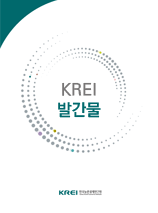- The Impacts of the COVID-19 on the Korean Agricultural Market
-

-
This analysis studies the pandemic’s impacts on the Korean agricultural market by using the KREI-KASMO Model.
• We used the KREI-KASMO(KREI-Korea Agricultural Simulation Model) to examine overall changes in the agricultural sector after the outbreak of the coronavirus.
• We prepared three scenarios to project the impacts: Scenario I (domestic situation stabilized in end-June, the global pandemic continues), Scenario II (overseas and local pandemic continues for the whole year), Scenario III (continuous pandemic at home and abroad and limited increase in Korea’s export value)
The value of agricultural production in Korea decreases 0.4~1.0% compared with the baseline due to economic recession around the world caused by the pandemic.
• The scenario analysis shows that the farming production will drop by 0.4% (Scenario I)~1.0% (Scenario III) compared with the baselines.
• The effect of a decrease in demand for local and overseas produce caused by economic recession is more significant than that of price increase resulted from exchange rate hikes.
A decrease in flower production is the largest followed by poultry, vegetables, and grains. Meantime, the production of meat and fruits increases.
• (Flowers) As the demand decreased due to cancelled school graduation events and performances amid the pandemic, the total production is likely to reduce 5.7~7.0% compared with the baseline.
• (Fruits) A rise in imported fruit prices from the KRW’s depreciation caused a drop in fruit imports. As demand for domestic fruits was higher than demand contraction from economic recession, the fruit production is likely to increase 0.4~0.9% compared with the baseline.
• (Meat) While import prices increased due to problems in the international supply chain (closure of meat-processing companies), domestic meat consumption rose. The increase in household consumption is likely to expand production by 0.6~1.5% versus the baseline.
Korea’s trade balance is likely to improve by 4.4~7.6% compared with the baseline due to the exchange rate hikes amid the pandemic.
• Import value is likely to drop 3.4~5.5% versus the baseline in proportion to exchange rate hikes.
• Export value is likely to rise 0.0~1.4% versus the baseline in proportion to exchange rate hikes.
• The self-sufficiency rate is likely to expand 0.3~0.4%p due to a decrease of 3.1~4.8% in the import value. -
목차
요약문
This analysis studies the pandemic’s impacts on the Korean agricultural market by using the KREI-KASMO Model.
• We used the KREI-KASMO(KREI-Korea Agricultural Simulation Model) to examine overall changes in the agricultural sector after the outbreak of the coronavirus.
• We prepared three scenarios to project the impacts: Scenario I (domestic situation stabilized in end-June, the global pandemic continues), Scenario II (overseas and local pandemic continues for the whole year), Scenario III (continuous pandemic at home and abroad and limited increase in Korea’s export value)
The value of agricultural production in Korea decreases 0.4~1.0% compared with the baseline due to economic recession around the world caused by the pandemic.
• The scenario analysis shows that the farming production will drop by 0.4% (Scenario I)~1.0% (Scenario III) compared with the baselines.
• The effect of a decrease in demand for local and overseas produce caused by economic recession is more significant than that of price increase resulted from exchange rate hikes.
A decrease in flower production is the largest followed by poultry, vegetables, and grains. Meantime, the production of meat and fruits increases.
• (Flowers) As the demand decreased due to cancelled school graduation events and performances amid the pandemic, the total production is likely to reduce 5.7~7.0% compared with the baseline.
• (Fruits) A rise in imported fruit prices from the KRW’s depreciation caused a drop in fruit imports. As demand for domestic fruits was higher than demand contraction from economic recession, the fruit production is likely to increase 0.4~0.9% compared with the baseline.
• (Meat) While import prices increased due to problems in the international supply chain (closure of meat-processing companies), domestic meat consumption rose. The increase in household consumption is likely to expand production by 0.6~1.5% versus the baseline.
Korea’s trade balance is likely to improve by 4.4~7.6% compared with the baseline due to the exchange rate hikes amid the pandemic.
• Import value is likely to drop 3.4~5.5% versus the baseline in proportion to exchange rate hikes.
• Export value is likely to rise 0.0~1.4% versus the baseline in proportion to exchange rate hikes.
• The self-sufficiency rate is likely to expand 0.3~0.4%p due to a decrease of 3.1~4.8% in the import value.저자정보
저자에게 문의
구매안내
KREI의 출판물은 판매 대행사 (정부간행물판매센터)와 아래 서점에서 구입 하실 수 있습니다.
판매대행사
- (주)정부간행물판매센터http://www.gpcbooks.co.kr사이트 바로가기
- 서울특별시 중구태평로 1가 25번지
- TEL 02) 394-0337, 734-6818
- FAX 02) 394-0339
판매서점
판매서점 교보문고 http://www.kyobobook.co.kr/ 영풍문고 http://www.ypbooks.co.kr/ 알라딘 http://www.aladin.co.kr/ 활용도 정보
활용도 정보 상세정보 조회 좋아요 다운로드 스크랩 SNS공유 8332 0 110 0 0 -
- Suggestions to Promote the Hometown Love Donation System
- Gouk, Seungyong
- 2022.11.25
- KREI 이슈리포트
-
- Ten Years of Korea-U.S. FTA: focusing on agri-food trade
- Kim, Kyungphil
- 2022.06.09
- KREI 이슈리포트
-
- Impacts of Ukraine-Russia Conflict on Global Grain Prices
- Kim, Jongjin
- 2022.03.31
- KREI 이슈리포트
-
- 10 Agricultural Policy Issues of Korea in 2019
- Jeong, Minkook
- 2019.01.29
- KREI 이슈리포트
-
- State of Korean and Overseas Markets for Environment-Friendly Agricultural Products and Challenges 2018
- Jeong, Hakkyun; Sung, Jaehoon; Lee, Hyeonjeong
- 2018.09.12
- KREI 이슈리포트
-
- Measures to Establish the Water-Energy-Food Nexus for Agricultural Resource Management
- Sung, Jaehoon; Cho, Wonju; Lee, Hyeonjeong
- 2018.09.05
- KREI 이슈리포트
-
- Changes in the Trade of Agricultural and Livestock Products and Implications after Seven Years from the Enforcement of the Korea-EU FTA
- Song, Woojin; Lee, Hyunkeun; Myeong, Suhwan; Yoo, Juyoung
- 2018.06.29
- KREI 이슈리포트
-
- 10 Agricultural Policy Issues of Korea in 2018
- Kim, Byoungryul
- 2018.01.22
- KREI 이슈리포트
-
- Income Changes by Type of Farm Household and Implications
- Woo, Byungjoon
- 2017.11.30
- KREI 이슈리포트
-
- Fact-checking of Unbalanced Korea-U.S. Trade and Countermeasures in the Agricultural Sector
- Lee, Hyunkeun; Myeong, Suhwan; Lim, Chehwan; Song, Woojin
- 2017.10.17
- KREI 이슈리포트
-
- 10 Agricultural Policy Issues of Korea in 2019
- Jeong, Minkook
- 2019.01.29
- KREI 이슈리포트
-
- Income Changes by Type of Farm Household and Implications
- Woo, Byungjoon
- 2017.11.30
- KREI 이슈리포트
-
- 10 Agricultural Policy Issues of Korea in 2018
- Kim, Byoungryul
- 2018.01.22
- KREI 이슈리포트
-
- Job Creation Potential for the Youth and Challenges in the Agricultural Industry
- Ma, Sangjin
- 2017.01.01
- KREI 이슈리포트
-
- Implementation Plan and Implications of International Development Cooperation Projects for Agriculture in 2017
- Heo, Jang
- 2017.04.28
- KREI 이슈리포트
-
- 2016 Production Status and Market Prospect of Eco-Friendly Agricultural Products at Home and Abroad
- Jeong, Hakkyun; Lee, Hyejin; Kim, Changgil
- 2016.11.30
- KREI 이슈리포트
-
- Global Spread of Saemaul Undong for Rural Development in Developing Countries
- Heo, Jang; Lee, Yoonjung
- 2016.11.30
- KREI 이슈리포트
-
- Goals and Strategies to Reduce Greenhouse Gas Emissions in the Agriculture Sector
- Jeong, Hakkyun; Kim, Changgil
- 2015.11.03
- KREI 이슈리포트
-
- 70 Years' Achievements and New Challenges of Korean Agriculture and Rural Communities
- Song, Miryung; Moon, Hanpil; Kim, Meebok; Seong, Jooin; Lim, Jieun
- 2015.09.15
- KREI 이슈리포트
-
- Strategy for Creative Economy, and Vitality in Agriculture and Rural District
- Park, Joonki
- 2013.06.18
- KREI 이슈리포트
의견남기기


